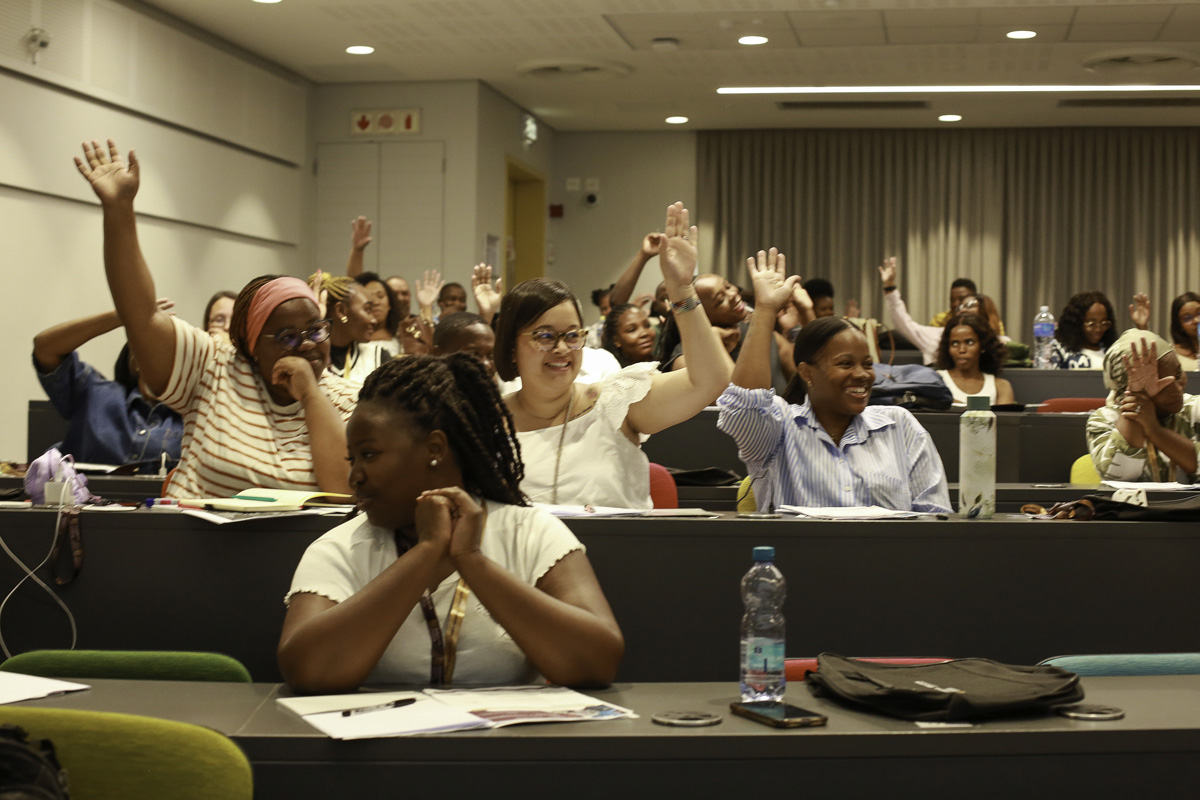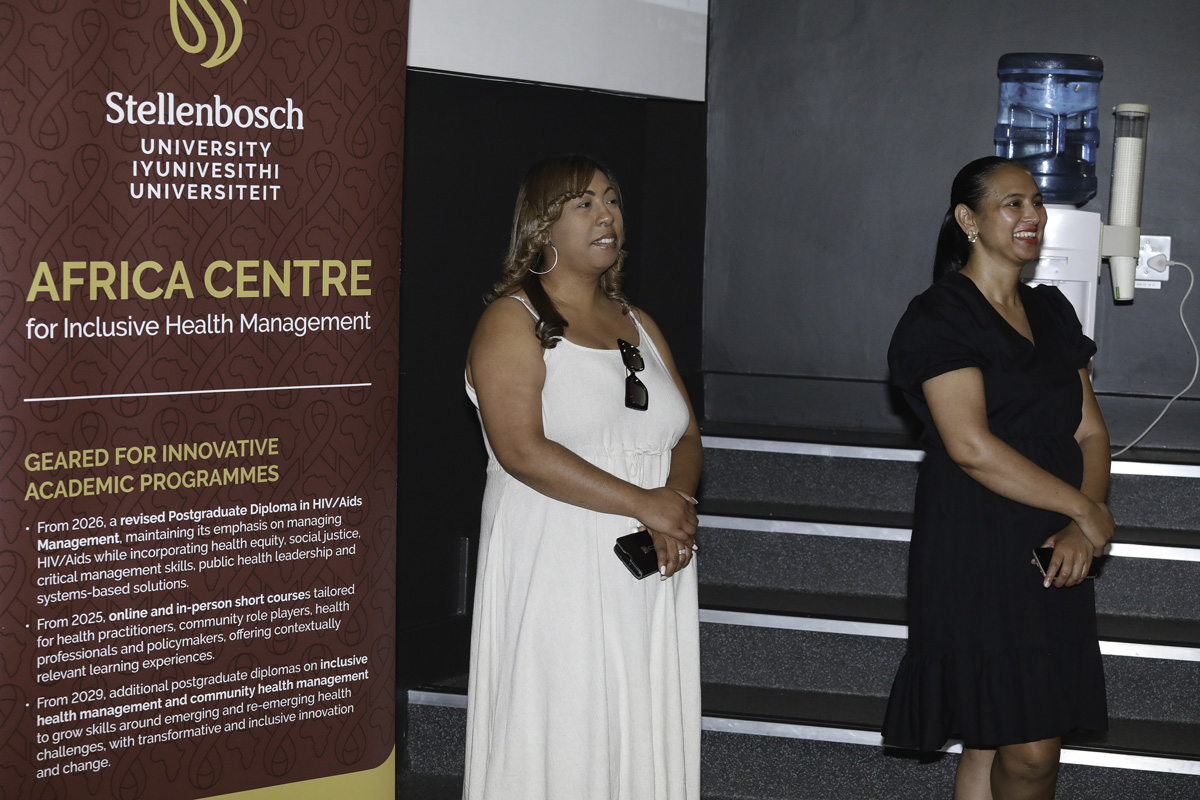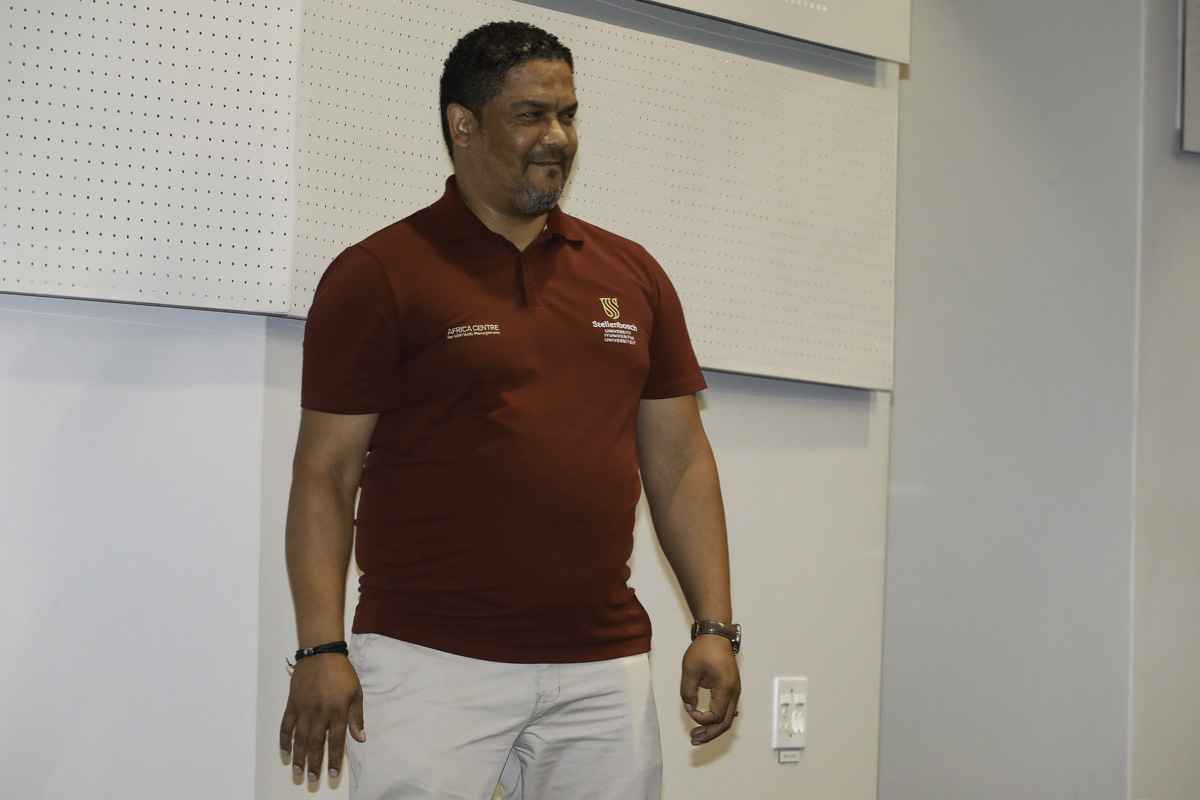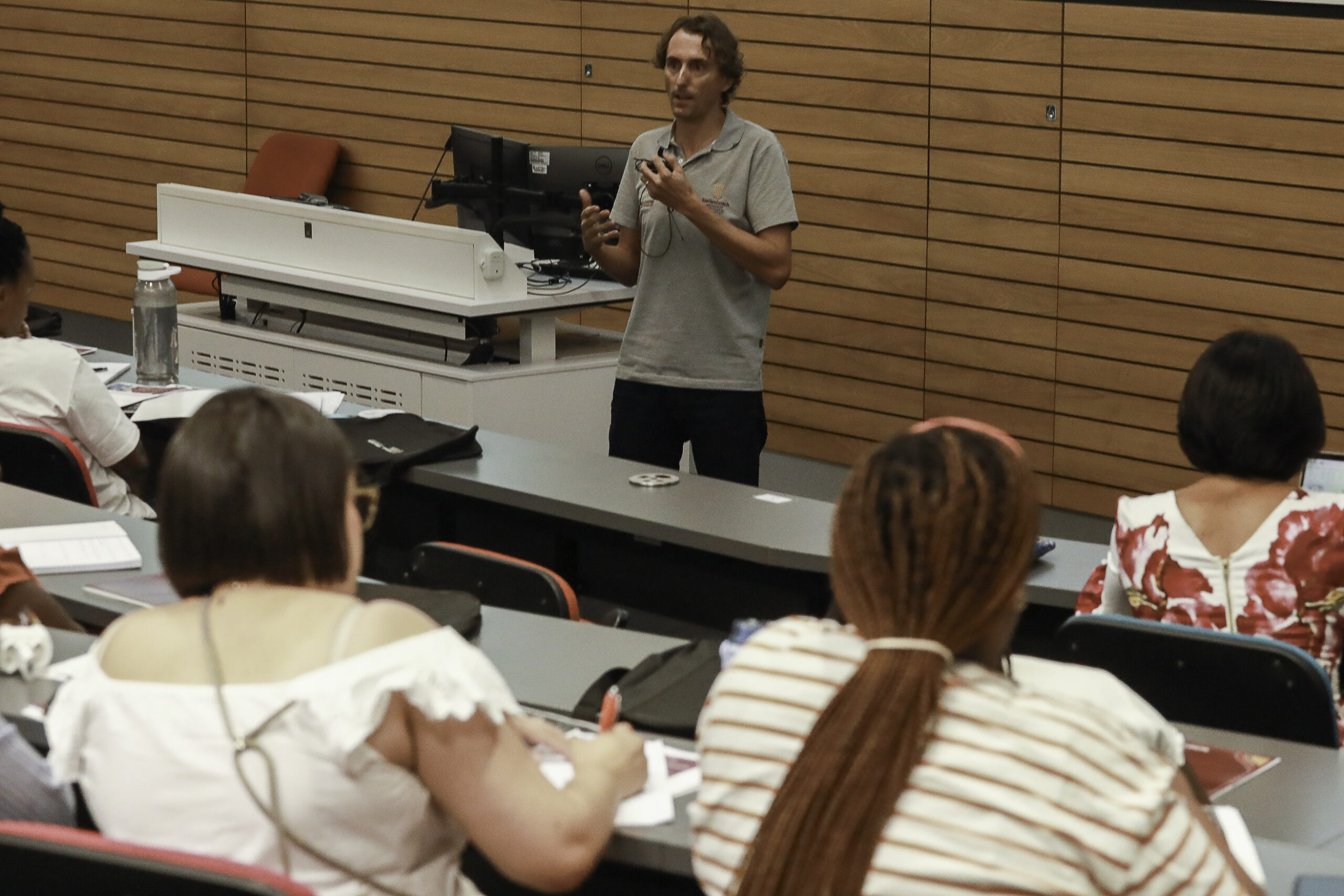

About the Africa Centre’s PgDip summer school
The summer school is the annual kick-off event for our flagship programme, the Postgraduate Diploma in HIV/Aids Management. From 3 to 7 February, we hosted the first face-to-face PgDip summer school since 2020. Every day was packed with insightful presentations relating to the PgDip modules and topics about the various dimensions of inclusive health management. This blog series provides an overview of the sessions and we hope the insights encourage prospective students to sign up for 2026.
Find out more about the programme here.
This year’s PgDip cohort got warm welcomes from the Africa Centre’s director, Dr Munya Saruchera, and Prof Ada Jansen, the EMS Faculty’s vice dean for learning & teaching. Pictured with them is the Africa Centre’s academic coordinator, Anja Laas.
As the official start of the PgDip programme, a key aspect of the summer school is to help set up our students for success. Being a postgraduate, hybrid learning programme, students have to master research and writing skills and learn to navigate online admin systems and learning platforms. We therefore dedicate several sessions to briefing students on the academic and administrative aspects and the support that is available, so that they can focus on the course content.
On the admin side, the sessions include an administrative briefing on the everyday ins and outs of completing the programme, as well as training on how to use SUNLearn, Stellenbosch University’s online learning platform where students can access course material, submit written assignments and complete online quizzes. They can also communicate with fellow students and lecturers via the forum.
Postgrad practicalities
Cristan MacLeod and Deliandri Uithaler from the university’s Postgraduate Skills Development Programme introduced students to the various forms of support available via the programme. This includes free academic and professional skills training, e-resources and other value-adds.
The available e-resources include a research degree toolkit that serves as a guide to completing a research degree and Plan.it, a research project management tool that helps students manage milestones and deadlines. In terms of skills development, students have access to a range of free workshops (in-person and online), events and resources to help them hone their research and professional skills, including academic integrity and writing skills, research skills, technical skills (e.g. thesis formatting) and professional skills (e.g. presenting a talk). To find out more about the services on offer, visit their website.
The SU Writing Lab is another invaluable support service, offering writing consultations and workshops. The department presented an introductory session on academic writing to help students start preparing to submit a quality research proposal.
Beyond AI to IA
These days, no research project can be tackled without a firm understanding of the role and use of artificial intelligence (AI). In this regard, Prof Kudzayi Tarisayi from the School of Science, Mathematics and Technology Education (SMSTE) at North-West University shared his insights on intelligence augmentation (IA), which is where AI tools meet human intelligence. “IA involves human input and judgement at every step of the process (of using AI), in order to optimise systems to bring benefits and avoid harm,” he explained. In other words, IA is a way of addressing the potential ethical shortcomings and pitfalls of using AI in academic research, such as bias, fake citations and data misuse.
In illustrating how human expertise should be used with AI to enhance research efficiency, Tarisayi explored the key aspects students must consider when leveraging AI in their research:
- Accountability and integrity, i.e. avoiding using AI to fabricate, falsify or manipulate data (as the researcher remains accountable for the integrity of content generated with AI) and using AI as a tool, not an author.
- Transparency, including how to disclose AI use in research and acknowledging AI’s limitations and biases.
- Privacy and confidentiality, e.g. the importance of not inputting sensitive information into AI tools and how to handle third-party data with AI.
According to Tarisayi, equipping researchers with ethical AI frameworks to reduce bias ensures equitable resource allocation in health policies and promotes accountability, which is vital to inclusive health management. We couldn’t agree more.

Administrative officers like Bianca Jacobs and Yolandé Barendse are crucial to the success of an event like the summer school.


Our other summer school lookback blogs focus on inclusive health management and HIV/Aids-related sessions.
